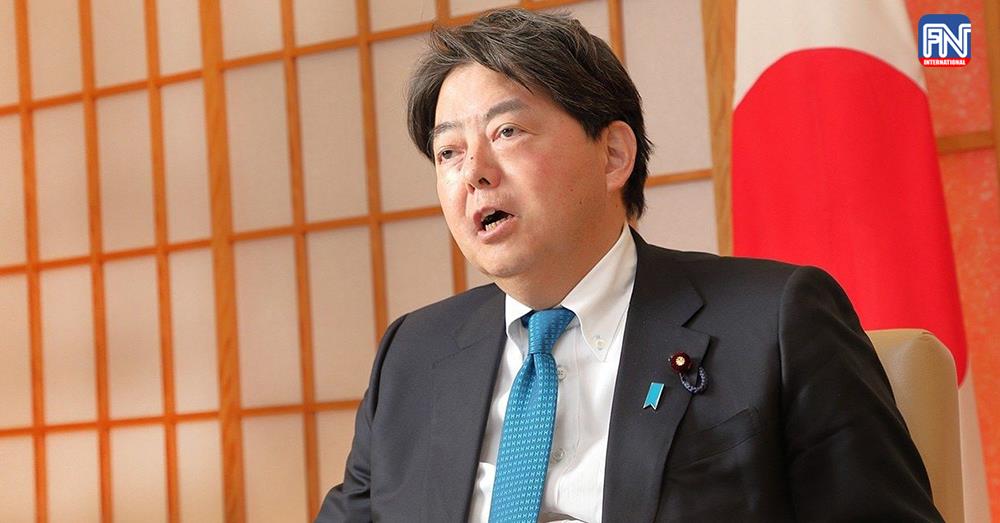TOKYO, Dec 2 (AFP) - Japan will use its turn next year in leadership roles at the Group of Seven and the United Nations to pressure Russia to halt its war in Ukraine, Japanese Minister of Foreign Affairs Yoshimasa Hayashi said at the Reuters NEXT conference.
"Russia's ongoing aggression against Ukraine is a clear violation of international law. It is an unacceptable and outrageous act threatening the very foundation of the international order," Hayashi said.
Japanese leaders have said Russia's attack on Ukraine poses a challenge to their own national security, and fear it may encourage North Korea to further threaten its neighbours and embolden China to use military force to push its territorial ambitions in the South China Sea and East Asia, including against nearby Taiwan.
Japan's presidency of the G7 industrial democracies in 2023 and its return for a two-year stint as a non-permanent Security Council member will give it a more conspicuous international platform to voice its concerns.
In October, the G7 committed to providing financial, humanitarian, military, diplomatic and legal support to Ukraine for as long as necessary. Hayashi said Japan would work to keep the group united.
"No one nation can shrug Russia's aggression off as someone else's problem," Hayashi said. Japan wants to coordinate with other "G7 nations and like-minded countries to keep on good teamwork vis-a-vis such issues as Russia's aggression on Ukraine and other measures."
In May of next year, Prime Minister Fumio Kishida will host G7 leaders in Hiroshima for a summit that is expected to focus on threats posed by nuclear weapons.
Hayashi also reiterated that Japan would make a fresh push for United Nations reforms next year to tackle a "dysfunctional" Security Council that has failed to address Russia's aggression in Ukraine.
Japan, which is the third biggest contributor to the UN's budget, and is still designated by the UN as an "enemy state" along with other nations defeated in World War Two, has long advocated for expansion of the 15-member council, including the first addition of permanent seats since its creation almost eight decades ago.
"We would like to further strengthen the movement for reform for the United Nations," Hayashi told Reuters.
"Since the start of the United Nations, the membership has not changed. It should reflect the current status of the world, not in 1945," he added.
Such reforms will prove a difficult challenge given Russia's and China's vetoes on decisions, a privilege they enjoy with the United States, Britain and France.
The effort could, however, add pressure on Moscow over its "special military operation" in Ukraine.
Frustration among the UN's 193 members is growing, said Hayashi. After Russia invaded Ukraine, almost three-quarters of the General Assembly voted to reprimand it.
